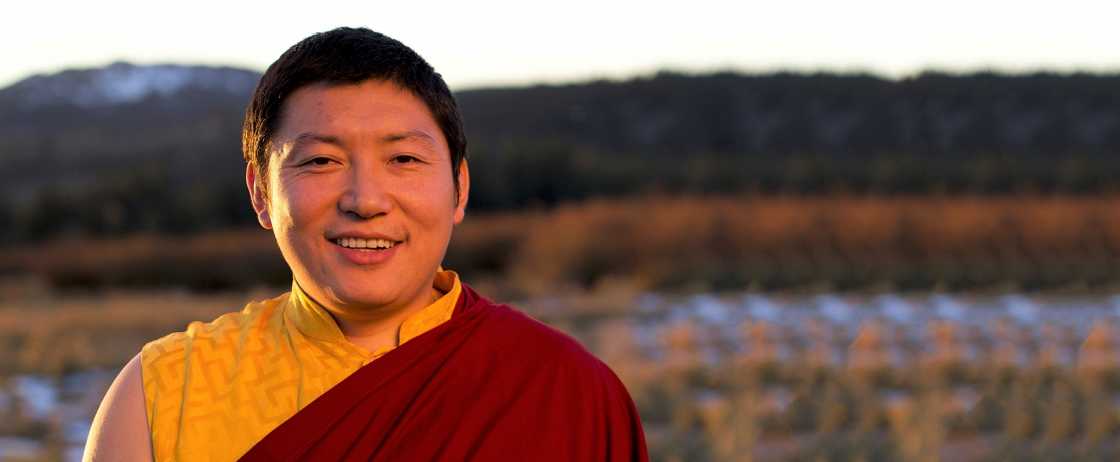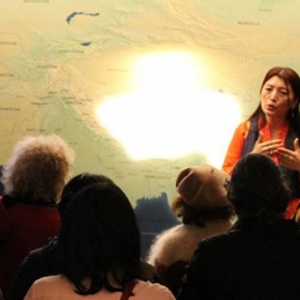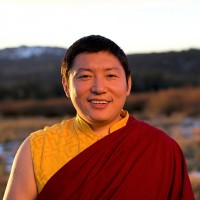
Kyabgön Phakchok Rinpoche
Stories of Padmasambhava
Wednesday, 8.1.18
7:00 PM - 8:30 PM
Tibetan Buddhist scholar and reincarnate master, Kyabgön Phakchok Rinpoche celebrates the Tibetan practice of storytelling by sharing stories from the life of Guru Padmasambhava and that of his student and the Mother of Tibetan Buddhism, Khandro Yeshe Tsogyal. Within these narratives, Padmasambhava is considered to be the source of most terma (treasure) teachings, many of which were written down and then concealed by Khandro Yeshe Tsogyal for the benefit of future generations.
Join Kyabgön Phakchok Rinpoche as he shares his stories and teachings. Q&A to follow with a closing meditation guided by Phakchok Rinpoche.
There will be a pre-program tour of the exhibition The Second Buddha, led by curator Elena Pakhoutova, from 6:15–6:45 PM on the Museum’s 6th floor.
About the Speaker
Kyabgön Phakchok Rinpoche was born in 1981 and is a lineage holder of the Profound Treasures of Chokgyur Lingpa from the Nyingma School of Early Translations and one of the throne-holders of the Riwoche Taklung Kagyu Lineage. Phakchok Rinpoche’s primary root gurus are his grandfather, the late Kyabje Tulku Urgyen Rinpoche, and the late Kyabje Nyoshul Khen Rinpoche.
Phakchok Rinpoche received a traditional education from the Dzongsar Shedra in India, the complete Chokling New Treasures lineage from Tulku Urgyen Rinpoche and Kyabje Tsikey Chokling Rinpoche, and the Great Perfection lineage from Nyoshul Khen Rinpoche. Rinpoche’s teaching style is direct, addressing the needs of those present; traditional, not compromising the methods of practice and transmission in the slightest; and accessible, teaching the profound meaning in a way that can be understood and glimpsed by people of diverse backgrounds.
As a yogi practitioner with a family and the responsibility of monastic institutions, Rinpoche is deeply familiar with both ways of life and practice. Rinpoche’s life defines what it means to be a dharma practitioner in today’s world by emphasising that practitioners should find a balance in their lives. There should be a base of study and contemplation in order to understand the profound views of the Buddha’s teachings, and practice should be emphasized in a way that genuinely reduces ego clinging and negative emotions through a range of methods and practices. Altruistic activity should address the needs of those in one’s community and beyond as an expression of the compassion and wisdom cultivated in practice. These are some of the main principles that Rinpoche practices and teaches to his own students.



